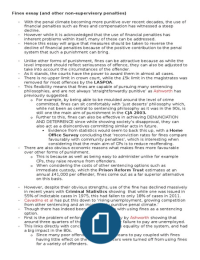Essay
Fines as a Punishment - Structured Essay Plan
- Course
- Institution
These are the final notes I made before my exam, in which I achieved a good First. They outline the use of fines as a method of punishment and cover in depth the issues surrounding their use.
[Show more]



